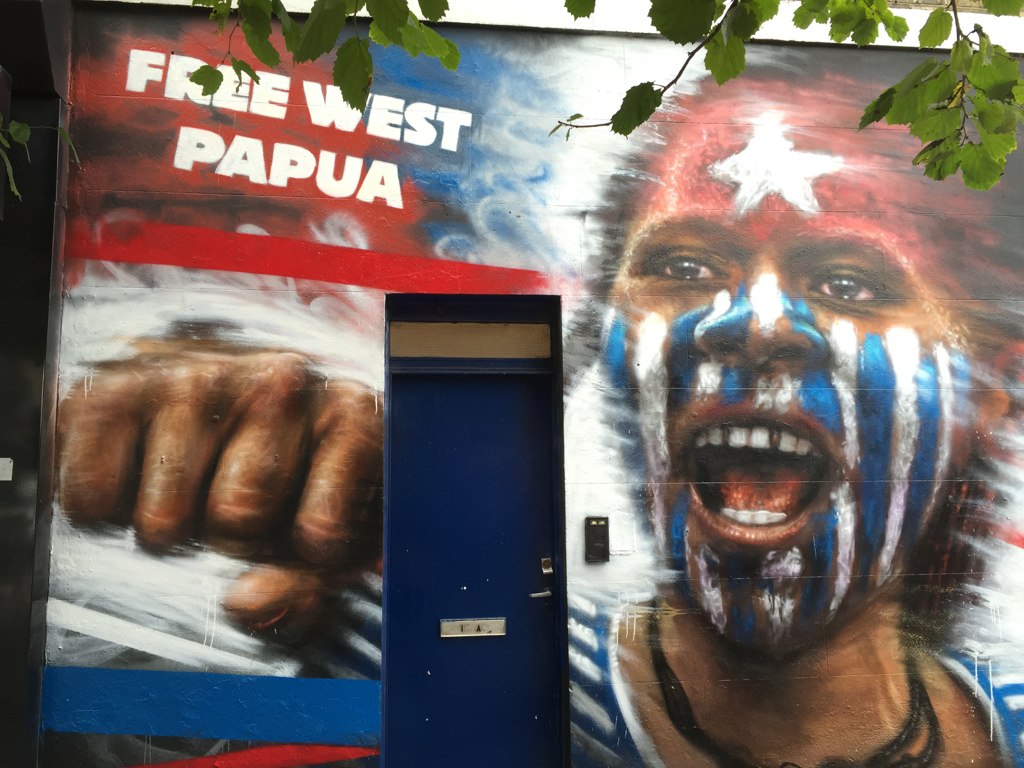 |
| Image: Flickr User - Matt Brown |
On Wednesday, August 30, a British team of activists ended a 30-hour swim along Lake Geneva and handed in a petition with 120,000 names on it to the UN.
The petition calls on the UN to take action on West Papua and says the people there should be given a new vote on self-determination.
Benny Wenda, spokesman for the United Liberation Movement for West Papua, was on the quayside to welcome the swimmers on Wednesday.
— Free West Papua (@FreeWestPapua) August 30, 2017
"This swim is a historic moment in our long path to freedom. The swim team are helping to shine a light on one of the world's longest and most brutal military occupations, and tens of thousands of West Papuans in my home-land are willing them on and signing the petition despite risk of arrest and torture. The actions of every one person can make a difference, and West Papuans need international solidarity work to help the world hear our cry for freedom," said Mr. Wenda, who was granted political asylum in Britain in 2003.
'Act of No Choice'
Earlier this year, Connor Woodman, a researcher with the Politics of Papua Project at the University of Warwick, explained why the 1969 referendum was bogus.
"It was called the Act of Free Choice, although West Papuans call it the Act of No Choice. The Indonesian military handpicked 1,026 West Papuans who were bribed, cajoled and threatened into voting unanimously for what was Dutch New Guinea to join Indonesia," Mr. Woodman told Sputnik.
Thousands of Indonesian settlers began colonizing West Papua in the 1970s and 1980s and the indigenous people are now believed to make up only 50 percent of the population.
— Free West Papua (@FreeWestPapua) August 30, 2017
Activists claim more than 500,000 people have been killed under Indonesian occupation and vast tracts of the world's second‐largest rainforest have been destroyed by mining interests, also accused of polluting water sources.
"Without international intervention, there is real fear that the West Papuan people, and their lands, will become extinct in our lifetime," says the petition.
Joel Evans, founder of Swim for West Papua, explained why they had organized the swim in Lake Geneva.
"West Papua has been hidden from the public eye for nearly half a century. Hundreds of thousands have died, been tortured, arrested, beaten and imprisoned. Indonesia is trying to cover up a genocide, with the help of its Western allies. We hope this swim can penetrate the shadows and assist the Papuans in their struggle for basic self-determination and liberation. Doing this swim requires us to recognise our shared identity as human beings," said Mr. Evans.
Legitimate Occupation?
Indonesian security forces have been accused of carrying out genocide against West Papuans, who are a Melanesian people closely related to the people of neighboring Papua New Guinea.
Several West Papuan activists are allegedly being held as political prisoners.
In June, Yanto Awerkion, of the West Papua National Committee, was arrested by Indonesian security services during a rally and prayer session promoting the petition.
One of the websites hosting the petition, Avaaz, has been blocked by the Indonesian government.
Indonesia has always claimed its occupation of West Papua is legitimate and blames "separatist groups which engage in inciting public disorder and armed attacks on civilians and military personnel."
In 2015, Indonesian President Joko Widodo lifted a blanket ban on foreign journalists visiting West Papua but reporters still have to apply for special visas and few are willing to risk traveling to the country after two French journalists were arrested in 2014 and detained for months.
This story first appeared on Sputnik & is reposted here with permission.

